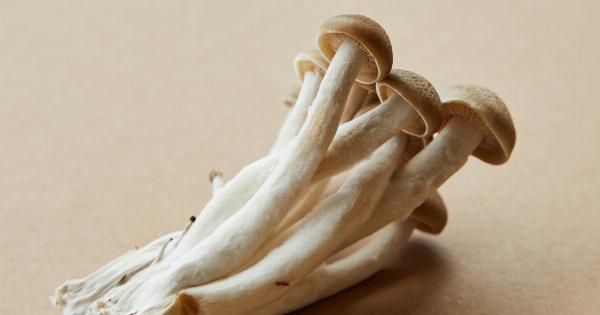Fungal infections of the feet are a common problem that can cause discomfort, itching, and embarrassment. Fortunately, there are many natural remedies available that can help get rid of fungus and keep your feet healthy and fungus-free.
In this article, we will explore some effective natural solutions that you can try to achieve fungus-free feet.
Understanding fungal infections of the feet
Fungal infections of the feet, also known as athlete’s foot or tinea pedis, are caused by various types of fungi that thrive in warm and moist environments. These infections can occur on the skin, nails, or both, and can be highly contagious.
Common symptoms of a fungal infection include redness, itching, burning sensation, cracked skin, blisters, and in severe cases, even bleeding.
Natural remedies for treating fungal infections
1. Tea tree oil: Tea tree oil has antifungal properties that can help eliminate the fungus causing the infection. Mix a few drops of tea tree oil with a carrier oil, such as coconut oil, and apply it to the affected areas several times a day.
2. Apple cider vinegar: The acidic nature of apple cider vinegar creates an unfavorable environment for the fungus to thrive. Mix equal parts of apple cider vinegar and water and soak your feet in this solution for about 15-20 minutes daily.
3. Garlic: Garlic has potent antifungal and antibacterial properties. Crush a few garlic cloves and apply the paste directly to the infected areas. Leave it on for 30 minutes before rinsing off with water.
4. Baking soda: Baking soda helps neutralize the pH level of the skin, making it difficult for the fungus to survive. Mix baking soda with water to create a paste and apply it to the infected areas. Leave it on for 10-15 minutes before rinsing off.
5. Coconut oil: Coconut oil contains lauric acid, which has antifungal properties. Apply coconut oil to the affected areas and massage gently for a few minutes. Repeat this process a few times a day to see effective results.
Preventing fungal infections
Prevention is always better than cure when it comes to fungal infections. Here are some tips to keep your feet fungus-free:.
1. Keep your feet clean and dry: Wash your feet thoroughly every day and make sure to dry them completely, especially between the toes.
2. Wear breathable shoes and socks: Opt for shoes made of natural materials, such as leather, and wear moisture-wicking socks to keep your feet dry.
3. Avoid walking barefoot in public places: Fungus can thrive in warm and damp areas like public showers, locker rooms, and swimming pools. Always wear flip-flops or sandals in such places.
4. Alternate your shoes: Give your shoes time to dry out before wearing them again. Rotating your shoes can help prevent the buildup of moisture.
5. Use antifungal powders or sprays: Applying antifungal powders or sprays to your feet and shoes can help keep fungus at bay.
When to seek medical help
While natural remedies can often provide relief from fungal infections of the feet, there are situations where medical intervention may be necessary.
If your symptoms worsen, persist for more than two weeks, or if you notice signs of a secondary bacterial infection, it is advisable to consult a healthcare professional.
Conclusion
Fungal infections of the feet can be uncomfortable and embarrassing, but with the help of these natural solutions, you can achieve fungus-free feet. Remember to follow the prevention tips to reduce the risk of future infections.
If your symptoms persist, consult a healthcare professional for proper diagnosis and treatment. Take care of your feet and enjoy healthy, fungus-free feet!.































